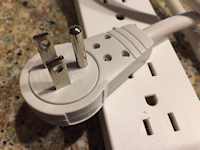
Employment
 According
to the U.S. Bureau of Labor Statistics, electrical and electronics engineers hold about
327,000 jobs in the United States.
Almost every industry has a need to employ electrical and electronics engineers. Electrical and electronics engineers work in industries including research and development, engineering services, manufacturing, telecommunications, and the federal government.
Click here to learn about employment of
electrical engineers by industry sector. According
to the U.S. Bureau of Labor Statistics, electrical and electronics engineers hold about
327,000 jobs in the United States.
Almost every industry has a need to employ electrical and electronics engineers. Electrical and electronics engineers work in industries including research and development, engineering services, manufacturing, telecommunications, and the federal government.
Click here to learn about employment of
electrical engineers by industry sector.
 Primary
Job Functions Primary
Job Functions
There
are hundreds of job titles which employers use to describe the job
functions and responsibilities relating to electrical and electronics
engineering. It is taken for granted that EE's draw heavily from
mathematics. Industry job titles are not necessarily consistent from one
employer to the next. Job titles often reflect a particular discipline or
industry; for example, computer engineers, aerospace engineers, control
systems engineers, and bioengineers.
Titles also refer to the basic
functions that engineers perform, such as research, design, testing and
evaluation, manufacturing and applications, maintenance and field service.
Often employers refer to a specific technical specialization or
technology, such as, "Software and Signal Processing Engineers for IBM /
Microelectronics," to describe the kind of engineer wanted. Some engineers
have titles that are associated with other functions, such as management,
human resources, sales and law. A good way to ascertain commonly used job
titles is to scan company web sites and employment ads placed in
newspapers and other publications.
Note: Some resources in this section are provided by
IEEE and the US Department
of Labor, Bureau of Labor Statistics.
|
|